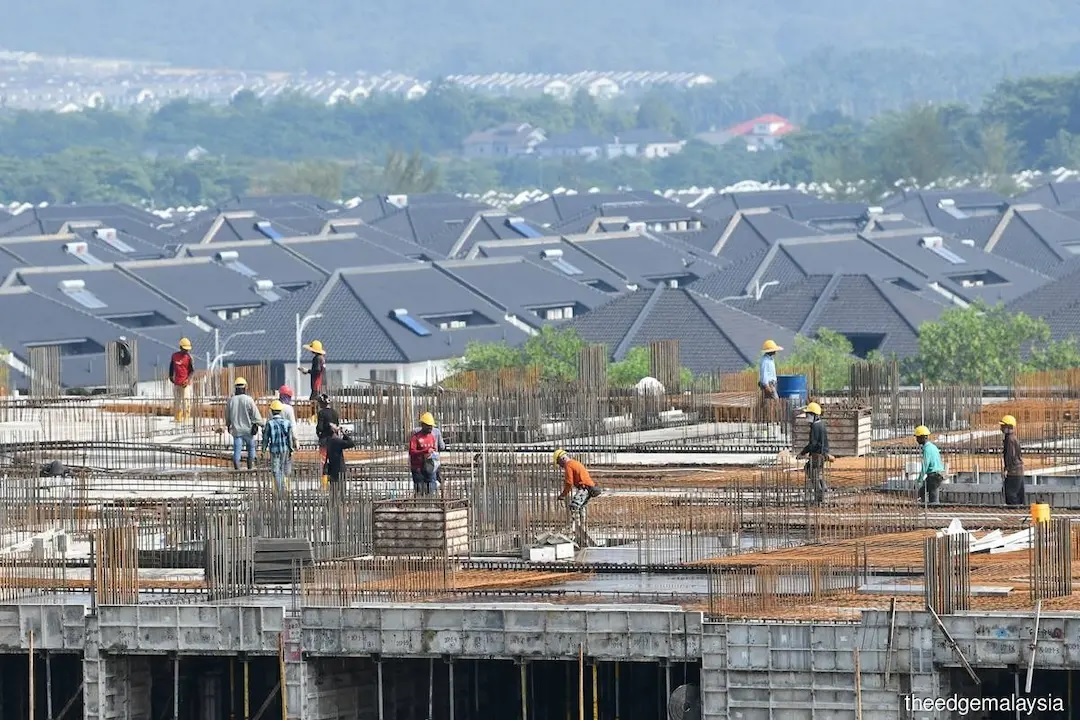
- In a note on Thursday, BMI said residential building and non-residential building are anticipated to expand 15.7 % y-o-y and 10.3 % y-o-y, respectively, this year.
KUALA LUMPUR (Sept 5): Malaysia's construction industry is expected to grow 9.6% year-on-year (y-o-y) in 2025, driven by the building sector, said BMI, a Fitch Solutions company.
Meanwhile, long-term infrastructure construction growth would be spurred by the energy and utilities investments, with regional integration driving the transport infrastructure development, it said.
In a note on Thursday, BMI said residential building and non-residential building are anticipated to expand 15.7 % y-o-y and 10.3 % y-o-y, respectively, this year.
“The positive outlook for residential building construction is supported by ongoing private sector investment in luxury and large-scale projects, alongside sustained government initiatives targeting affordable housing.
“At the same time, the robust expansion in non-residential building construction growth is underpinned by substantial investment in data centre and semiconductor manufacturing projects, spurred by rising demand for artificial intelligence (AI) and the country’s expertise in technology manufacturing,” it said.
On long-term infrastructure construction growth, BMI said the government’s commitment to the country’s energy transition through policies such as large-scale solar tenders, combined with funding directed at renewables, will see robust growth for the energy and utilities sub-sector.
“This is part of Malaysia’s drive to increase sustainability and accelerate green infrastructure development, under the 13th Malaysia Plan,” it said.
Meanwhile, the energy and utilities sub-sector is forecast to grow 6.5% in 2025, compared to the wider infrastructure industry growth forecast of 4.2%, it added.
BMI noted that power plants and transmission grids continue to represent the largest share of industry value in Malaysia’s energy and utilities construction sector — set to be the key growth driver over the coming decade.
Simultaneously, growth in the transport sector will be largely underpinned by commitments by the Malaysian government to prioritise improved connectivity in less developed regions, particularly in Sabah and Sarawak.
Moving forward, BMI forecasts Malaysia’s construction sector to see an annual growth of 4.1% between 2025 and 2034, with long-term growth primarily fuelled by Malaysia’s energy transition and industrial investment.
“Malaysia’s strategic position within global supply chains, complemented by supportive government initiatives such as the New Industrial Master Plan 2030, will continue to attract manufacturing and logistics investments to the country,” it said.
As Penang girds itself towards the last lap of its Penang2030 vision, check out how the residential segment is keeping pace in EdgeProp’s special report: PENANG Investing Towards 2030.

_2.jpg?HMES_S7ZJ4w4hVGLundrgRSIq67eCG5B)



